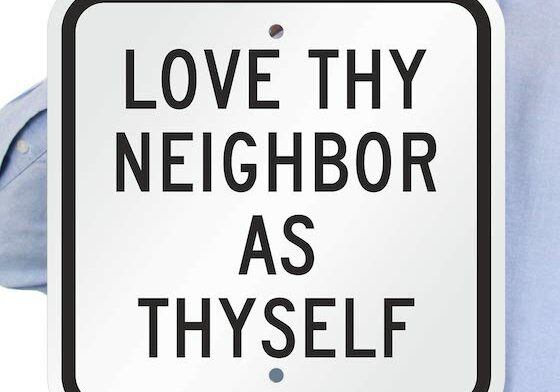A Biblical Response to Depression and Anxiety
“I lift up my eyes to the mountains—where does my help come from? My help comes from the Lord, the Maker of heaven and earth” (Psalm 121:2).
We all go through seasons in life where we face anxiety, depression, or deep discouragement. When this happens, our natural response is to look downward. Our bodies and minds often mirror our inner struggles—we look away, avoid others, and sometimes even try to disappear.
But God, throughout Scripture, gently and consistently calls us to look up. He invites us to shift our focus from ourselves and our circumstances to Him—our help, our hope, and our healer.
Let’s look at some psychological reasons we tend to look down and explore God’s better way.
Avoiding Eye Contact
Psychological Reality: We feel afraid of judgment and rejection. Scriptural Response: “Those who look to him are radiant; their faces are never covered with shame” (Psalm 34:5). God does not reject us—He invites us to approach Him without fear.
Low Self-Esteem
Psychological Reality: We feel unworthy or inadequate. Scriptural Response: “But you, O Lord, are a shield about me, my glory, and the lifter of my head” (Psalm 3:3). God Himself lifts our heads and renews our sense of worth.
Social Withdrawal
Psychological Reality: We wish to vanish to avoid connection. Scriptural Response: “The Lord is close to the brokenhearted and saves those who are crushed in spirit” (Psalm 34:18). God draws near when we pull away—He comes to find us.
Overwhelming Internal Focus
Psychological Reality: We are often overwhelmed by our thoughts. Scriptural Response: “Let us fix our eyes on Jesus, the author and perfecter of our faith” (Hebrews 12:2). Lifting our eyes helps us escape mental traps.
Defensive Posture
Psychological Reality: We attempt to protect ourselves from additional pain. Scriptural Response: “God is our refuge and strength, an ever-present help in trouble” (Psalm 46:1). God is our true shield—we don’t have to protect ourselves alone.
Shame or Guilt
Psychological Reality: We feel condemned and hide our faces. Scriptural Response: “Therefore, there is now no condemnation for those who are in Christ Jesus” (Romans 8:1). In Christ, our shame is taken away—allowing us to look up with confidence.
Physical Fatigue
Psychological Reality: Depression drains us physically and emotionally. Scriptural Response: “But those who hope in the Lord will renew their strength. They will soar on wings like eagles” (Isaiah 40:31). God provides new strength to the weary who seek Him.
Cognitive Overload
Psychological Reality: Our minds are flooded with anxious thoughts. Scriptural Response: “Cast all your anxiety on him because he cares for you” (1 Peter 5:7). Looking upward helps us let go of burdens we were never meant to carry.
Powerlessness and Submission
Psychological Reality: We often feel small, powerless, and out of control. Scriptural Response: “I lift up my eyes to the mountains—where does my help come from? My help comes from the Lord, the Maker of heaven and earth” (Psalm 121:1-2). Our help comes from God—lifting our eyes is a sign of hope.
Learned Habit
Psychological Reality: We instinctively look down without thinking. Scriptural Response: “Set your minds on things above, not on earthly things” (Colossians 3:2). We can refocus our attention through the consistent choice to direct our gaze towards God.
Now that we’ve seen what God’s Word says about how we should respond, let’s discuss practical ways to apply that to our daily lives. Here are a few suggestions:
- Physically: Intentionally lift your head and eyes during prayer, worship, or moments of feeling overwhelmed.
- Spiritually: Consistently focus your attention on God’s promises, His Word, and His presence.
- Mentally: Interrupt negative thought spirals by choosing to “look up” through Scripture, prayer, or worship.
- Relationally: Allow trusted people to help lift your gaze when you’re unable to do it on your own.
Looking down may be our natural response, but looking up is our divine invitation. Looking up is both a physical act and a spiritual discipline that shifts our focus from our pain to our Provider. When we lift our eyes to God, we start to see hope again. We are reminded that He is greater than our sorrow, stronger than our fear, and always near to the brokenhearted.
You might also like these articles...
Love Thyself!
Love Thyself! I understand this will make some folks uncomfortable. I can see the gears in your mind working through this, “What does he mean, Love Thyself!” We’re not supposed to do that. Wrong. We know the first greatest commandment is to ‘love the Lord your God with all your heart, all you soul, and…
Needy People!
Who is needy? People don’t like being needy or being considered needy. Many shy away from those they think are needy. As we reflect on this idea of needy people, it is essential to determine who is needy. So, here are my thoughts on the matter. I am needy! You are needy! All of humanity…
Self Diagnosing
Confusion reigned for a moment. I knew I was on my back. It was dark all around me. I could have checked the time, but realizing my glasses were not on, I would not have been able to decipher the numerals. I was in bed. Why was I awake? Then it dawned on me. I…




